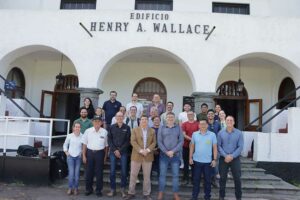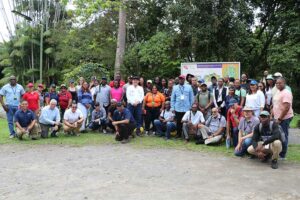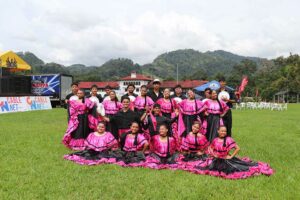Cooperation opportunities between CATIE and Wageningen University: Challenges in the banana sector in light of the Fusarium R4T threat
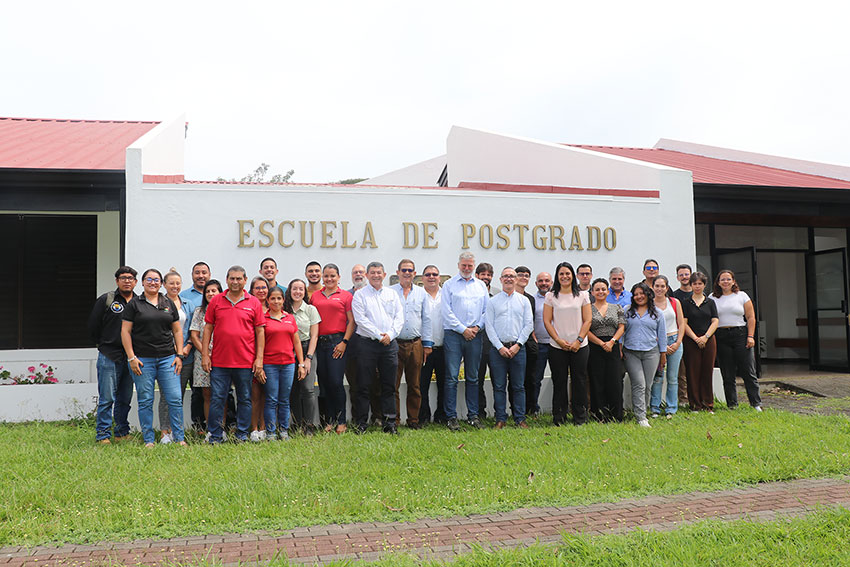
- Institutions emphasize that it is crucial to prevent the arrival of the disease in Costa Rica and that the strategy should focus on establishing diverse and resilient plantations.
Dr. Gert Kema, a prominent phytopathologist from Wageningen University, Netherlands, gave a lecture at CATIE titled "Opportunities for cooperation between CATIE and Wageningen in research and education,” along with a comprehensive overview of genetic improvement for resistance to Fusarium oxysporum Tropical Race 4 (Fusarium R4T) in bananas.
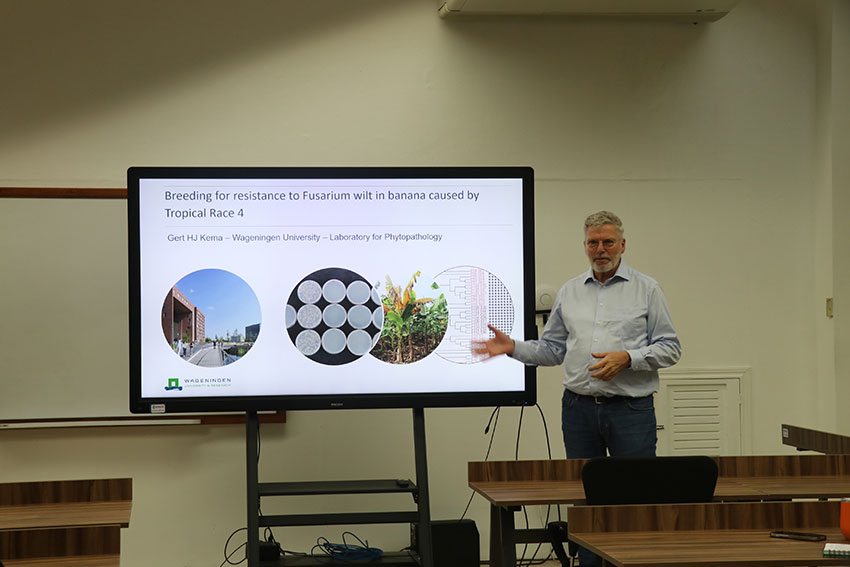
Dr. Kema, with a long-standing career in phytopathology, addressed the challenges the global banana industry faces due to the threat of the TR4 fungus and the advancements in prevention strategies and genetic improvement in the Honduras classroom of CATIE's Graduate School.
During his presentation, he emphasized the importance of prevention as the primary mechanism to tackle the TR4 threat, a disease that has not yet reached Costa Rica but has spread in other regions of Latin America. He pointed out that, at the regional level, strategies and protocols are already being developed to minimize the risk of introducing the fungus to local plantations.
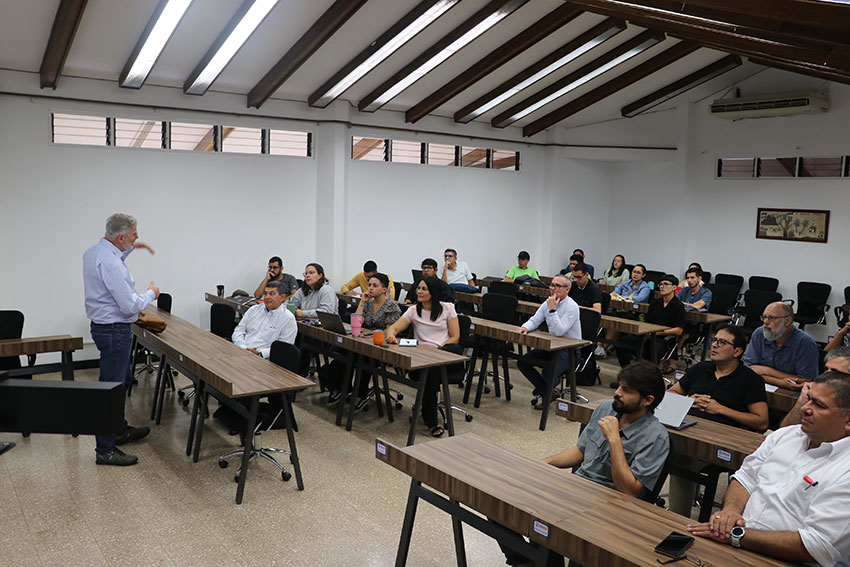
“The main priority is to prevent TR4 from reaching Costa Rica, but we are also advancing research to be prepared. The strategy should not simply be to search for a single resistant variety but to create more diverse and resilient plantations capable of facing multiple diseases," he said.
Wageningen University, located in the Netherlands, is a world leader in life and environmental sciences, focusing on sustainability. It is renowned for its agricultural and food research, addressing global challenges such as climate change and food security. With an international network of collaborators, it is a reference point in the development of advanced technologies such as genetic improvement and disease control in tropical crops.
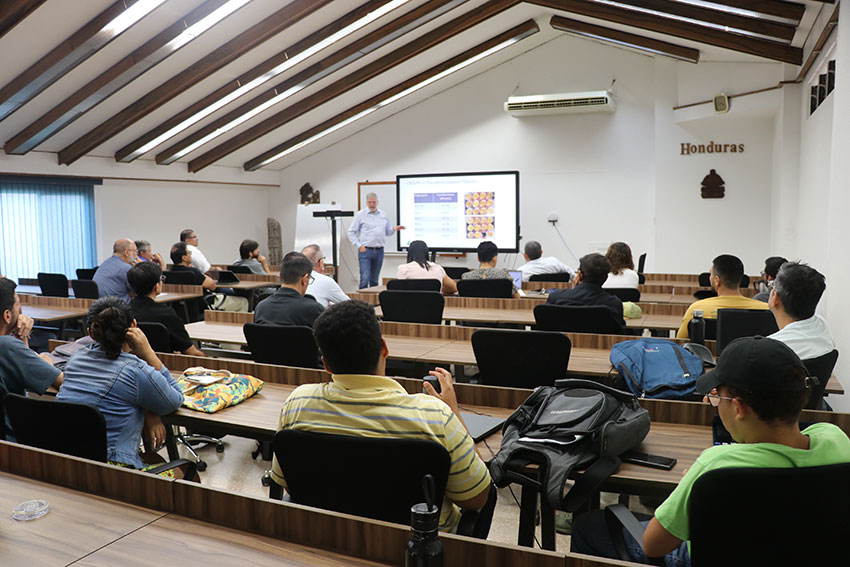
Diversification as a key strategy
One of the most relevant points of his presentation was the focus on plantation diversification as a key strategy to combat the disease. Unlike in the past, when the Gros Michel variety was replaced by Cavendish after the emergence of Race 1 of the fungus, Kema suggested that the future should focus on more diverse plantations, with varieties resistant not only to TR4 but also to other diseases like Sigatoka.
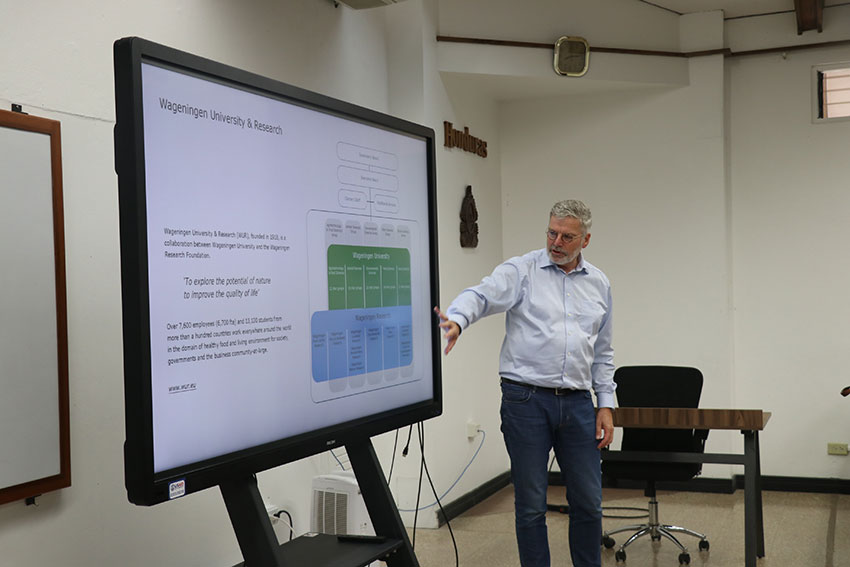
Wageningen has been utilizing technologies like CRISPR to modify specific genes of the fungus and enhance plant resistance. An example of these advances is the successful transformation of a single gene with an efficiency of 95.7%, a remarkable figure for the scientific community. Additionally, Dr. Kema highlighted the development of diagnostic tools that have been crucial for the early detection of TR4, such as PCR and LAMP tests, which allow for more accurate and rapid diagnosis.
The conference concluded with a call to strengthen cooperation between institutions like CATIE and Wageningen University to address the challenges of tropical agriculture.
In a brief interview afterward, Dr. Kema expressed his enthusiasm for returning to CATIE, an institution he first visited 20 years ago, and highlighted the opportunities for collaboration not only in bananas but also in other perennial crops such as cocoa and oil palm.
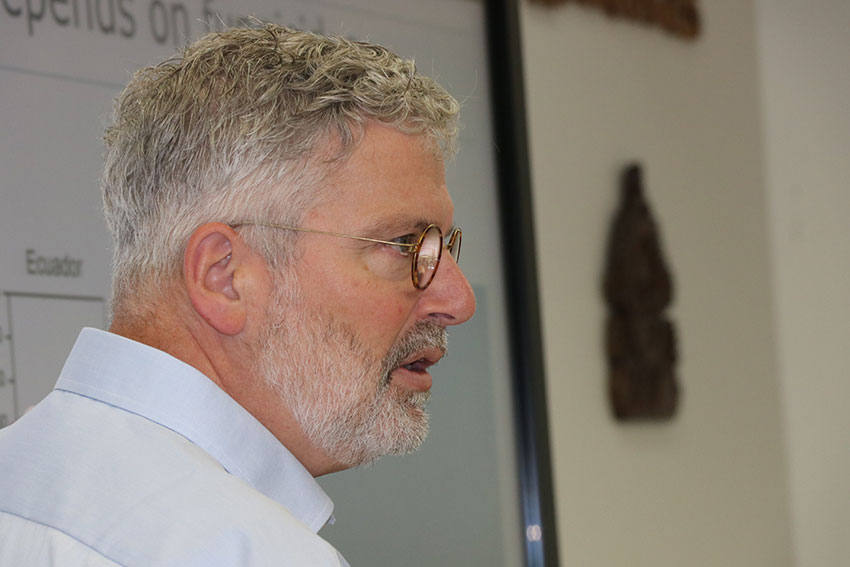
Written by:
Esteban Rodríguez Zamora
Communicator
Information Technology and Communication
CATIE
esteban.rodriguez@catie.ac.cr

